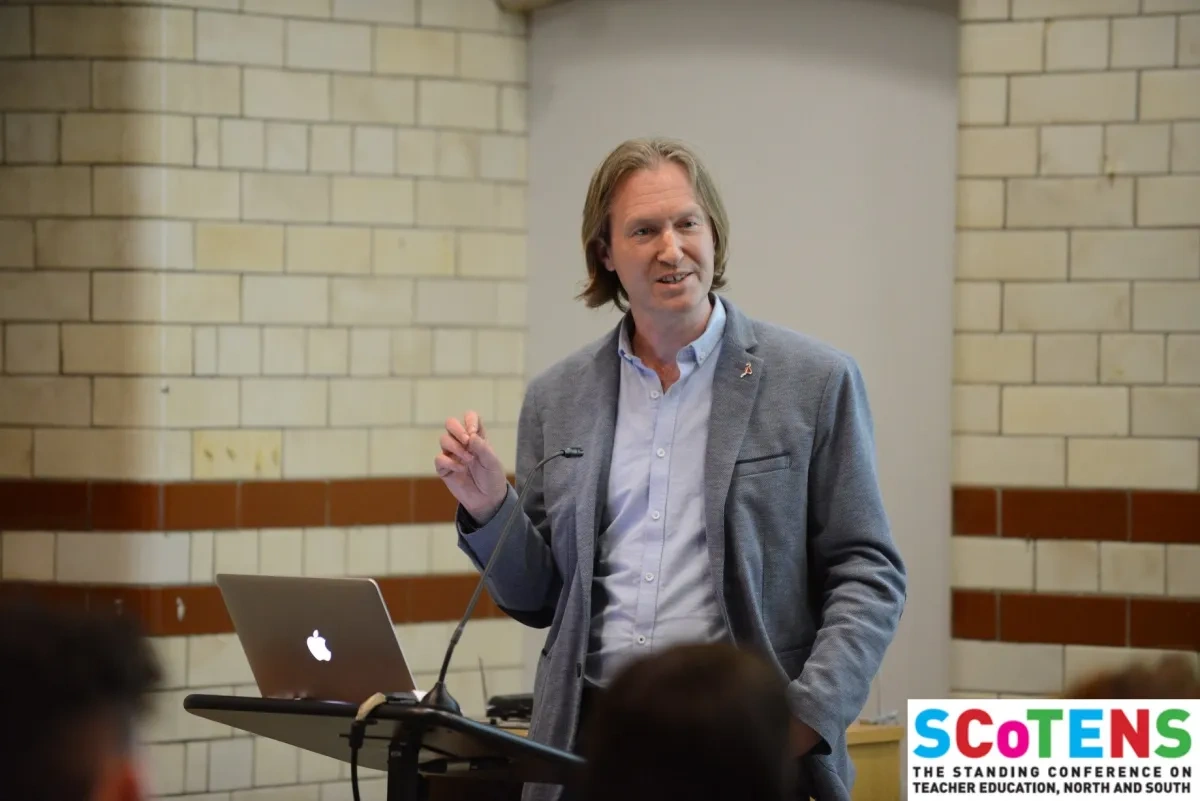

'Knowing Your Neighbour' - DCU and Ulster University Project Joint Winner of the SCoTENS John Coolahan Award
A DCU research project in partnership with Ulster University on ‘Knowing your Neighbour: Educating in Multi-Belief Contexts in Northern and Southern Ireland’ has been selected as one of the joint winners of the SCoTENS John Coolahan Award 2022. The research project was led by Dr Jones Irwin from the School of Human Development, DCU, and by Dr Aideen Hunter, School of Education, Ulster University. This award recognises the projects which are most in keeping with the values and ideals of SCoTENS and is named in honour of Prof John Coolahan, the former Chair of the Governing Body of St. Patrick’s College and the driving force behind the establishment of SCoTENS.
The award was created by SCoTENS* to recognise outstanding educational research that brought together professionals from both the Republic of Ireland and Northern Ireland. Funded by SCoTENS, the research explored the experience of ‘multi-belief’ or pluralist educational pedagogies amongst a specific group of ITE students and established primary school teachers North and South.
Key findings from the research ‘Knowing your Neighbour: Educating in Multi-Belief contexts in Northern and Southern Ireland’ suggest that
- The differences in Northern and Southern Irish contexts are significant with regard to the distinction between ‘multi-denominational’ and more ‘integrated’ approaches to pluralism. The distinctiveness of the approaches North and South respectively can lead to misunderstanding across the two jurisdictions and, additionally, it can create unnecessary challenges for teachers who wish to work between the two nations or in both.
- While there are different challenges in each national context, many of the particular issues that arise at school level for teachers and teacher students are similar when it comes to developing a ‘multi-belief’ pedagogy and pluralist educational practice. The significance of ITE provision for programmes of multi-belief and ethical education was noted as crucial and, while progress is being made in this area, there are differing experiences across different ITE colleges.
- It was clear from participants’ responses to the conferences and the community conversations approach, that substantial learning had taken place both pedagogically and philosophically. There had also been personal growth and self-reflection as professional teachers and students. The increase of knowledge of their ‘neighbour’ had also increased substantially through this exchange. The ‘borders in the mind’ were significantly broken down and new territories explored.
- Far more connects the Northern and Southern contexts, when it comes to issues of ethics and belief in schools, than divides us. More communication and collaboration across these contexts is hugely important at the present time, where tensions are rising with regard to issues of identity and belonging across diverse communities. Respect, capacity for listening to difference and the goal of mutual understanding were the key values noted by participants as enabling progress in education.
Speaking about the award, Dr Irwin said that, ‘whilst delighted to receive the recognition, the award highlights both the progress made and the residual challenges which remain to develop more pluralist educational approaches North and South’.
*SCoTENS is a network of 37 colleges of education, university education departments, teaching councils, curriculum councils, education trade unions and education centres.
